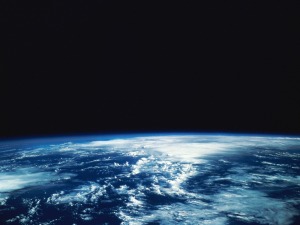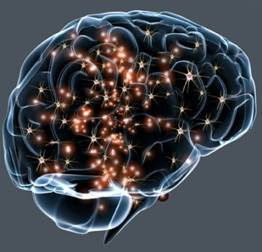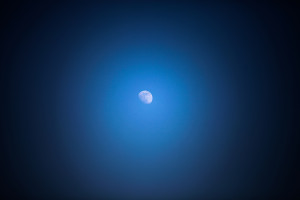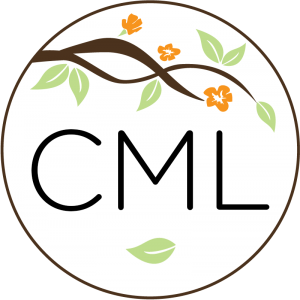 [su_dropcap style=”flat”]T[/su_dropcap]aking a strictly materialist-scientific point of view, one might come to the conclusion that all that really “exists” is physical matter.
[su_dropcap style=”flat”]T[/su_dropcap]aking a strictly materialist-scientific point of view, one might come to the conclusion that all that really “exists” is physical matter.
[su_quote]Things have independent proprieties and are there if we are looking at them or not. Why not believe this?[/su_quote]
It seems to fit with our experience of reality – I look at something, turn around, and it’s still there when I look again.
[su_dropcap style=”flat”]T[/su_dropcap]here is mutual agreement between many people on the proprieties of various objects, the description of experience.
Take the earth for example, there is now common consensus that it is round.
From this perspective, it”s not such a far leap to conclude that there must be something fundamental about “reality” – something that has nothing to do with me – something that I just come in contact with … right?
From the stand point of a radical empiricist it’s important to explore what it is that we really experience.
[su_quote]What do we really perceive – the object itself or our mental relationships to it?[/su_quote]
Do we perceive water or are we aware of the sense perceptions that our interaction with the water creates? This is subtle but if reality is made up of matter, independent of our perceptions, I’d like to be shown evidence from something outside, I’d like some non-perceived evidence. Has anyone seen this matter?
[su_dropcap style=”flat”]A[/su_dropcap]toms and molecules are theories – concepts based on scientific frameworks and modes of inquiry. All we know of them is what we can write down, say in relation to our sense perceptions, and information that we can extract from them.
So what are we left with?
A reasonable conclusion might be that physical reality is empty of inherent existence – it doesn’t exist all-by-itself, and all there really is our mind and perceptions…
 But wait! Not so fast. How do we account for the changing of the seasons, the growing of a plant, the decay of organic matter. That happens on its own without any obvious mind needing to perceive it.
But wait! Not so fast. How do we account for the changing of the seasons, the growing of a plant, the decay of organic matter. That happens on its own without any obvious mind needing to perceive it.
If there is only mind, who has ever seen this mind?
[su_dropcap style=”flat”]W[/su_dropcap]hen we practice meditation we look deeply into the nature of the mind itself. What does that mean? When you can attend to the mind with awareness and concentration, you can ask, if and where there is a mind independent of concepts – independent of perceiving.
[su_quote]Is the mind something solid that you can hold on to?[/su_quote]
When we apply the same consideration to mind as we do the physical world, we ultimately come to the same conclusion:
Mind is also empty of inherent existence – even it does not exist all-by-itself.
What are we left with? No matter.. no mind.. Is reality nothing at all?
 [su_dropcap style=”flat”]T[/su_dropcap]his is where the wisdom of the middle way comes in. Let us not ask questions that are unknowable in principal – we will never be able to know of matter and mind independent of our own conceptual framework of them, because that is all that is available to our experience.
[su_dropcap style=”flat”]T[/su_dropcap]his is where the wisdom of the middle way comes in. Let us not ask questions that are unknowable in principal – we will never be able to know of matter and mind independent of our own conceptual framework of them, because that is all that is available to our experience.
[su_quote] If we are having sensory experience – internal, external – there is always an observer, an object being observed and a relationship between them.[/su_quote]
If any one is missing the other two can not exist.
What emptiness is telling us, is that things are dependently originated (they don’t exist by themselves but only in relationship).
Meaning, mind and matter neither exists nor do they not exist. They arise together, interconnected. They cannot be thought of as something independent of our interpretation of them.
[su_quote]Our very perception make mind and matter what it is and at the same time and in the same way that mind and matter create our perception. The two can not be separated.[/su_quote]
[su_dropcap style=”flat”]Y[/su_dropcap]ou may ask, “Who cares?”
Well, good question! These fundamental assumptions lie at the very root of and directly impact how we perceive ourselves and the world.
If we believe that our mind and the world have an independent inherent existence, meaning they just “are” the way they are and there is nothing we can do about it; that we have to just put up with external circumstances, because, after all, they are “really” out there, whether we like them or not; then we live our lives as victims to circumstance. THIS IS INCREDIBLY DIS-EMPOWERING.
We may never question this – never think there could be another way. Indeed many people do not.
If, however, we come to see, through direct experience*, that our minds and the world are empty, meaning they only exist in relationship to an observer perceiving them and our conceptual understanding about them THEN THIS IS INCREDIBLY EMPOWERING.
It gives us freedom, it gives us choice. We see directly that we can transcend our experience as an observer observing phenomena, and then we do. We transcend our conceptual understanding and in this way we become free from our minds and the world.
We also see directly that if we change “this” observer, if we restructure our conceptual understanding based upon that direct experience – then we literally change our minds and the world without anything needing to be different “out there” or “in here”.
When we change our relationship to experience, the power is in our own hands and there is freedom.
*Direct experience is a reference to the kind of understanding that we know from meditation and mindfulness – an understanding that is not conceptual or abstract – an understanding that we know with certainty for ourselves and that we can trust and rely upon.


